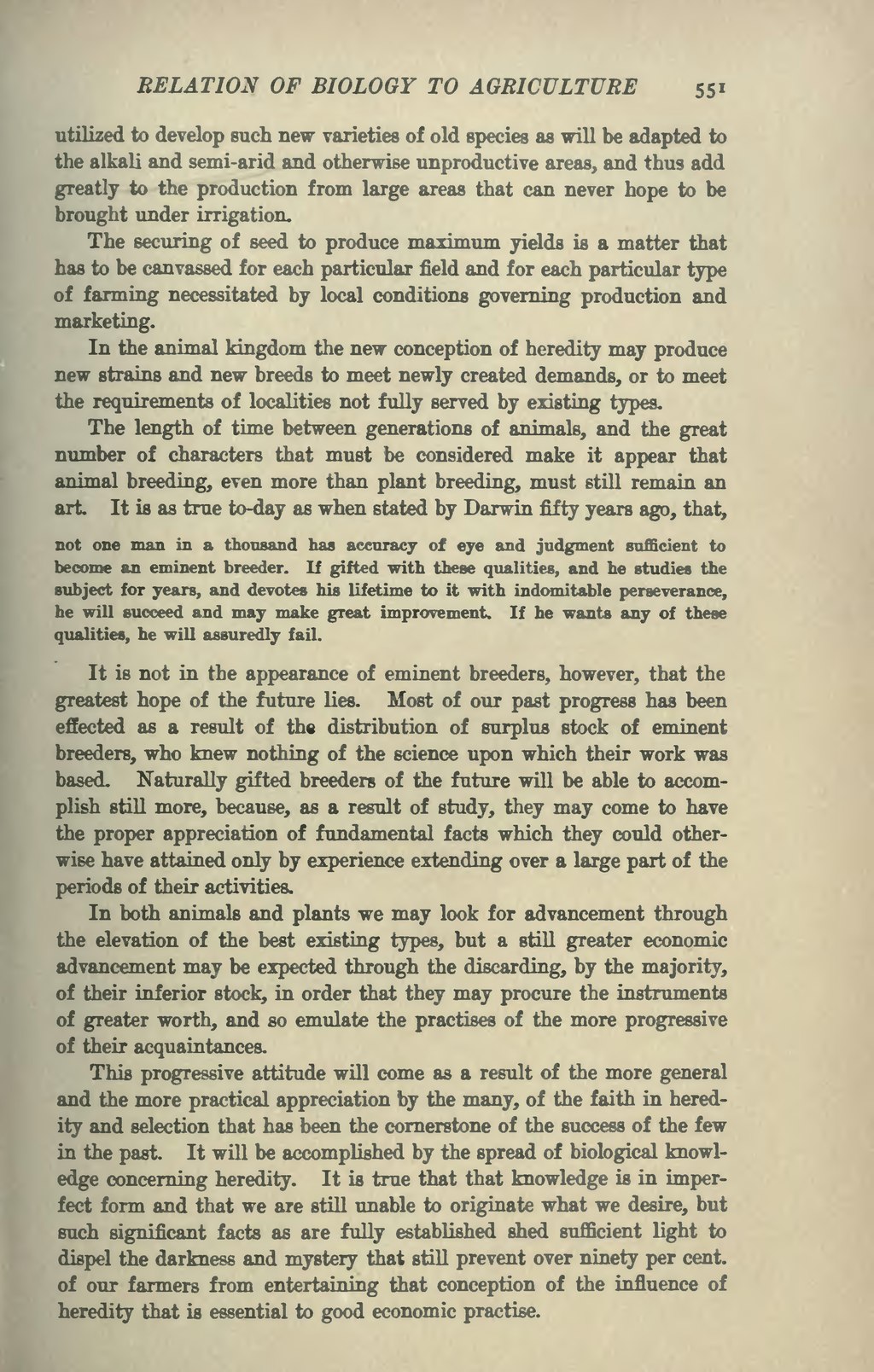utilized to develop such new varieties of old species as will be adapted to the alkali and semi-arid and otherwise unproductive areas, and thus add greatly to the production from large areas that can never hope to be brought under irrigation.
The securing of seed to produce maximum yields is a matter that has to be canvassed for each particular field and for each particular type of farming necessitated by local conditions governing production and marketing.
In the animal kingdom the new conception of heredity may produce new strains and new breeds to meet newly created demands, or to meet the requirements of localities not fully served by existing types.
The length of time between generations of animals, and the great number of characters that must be considered make it appear that animal breeding, even more than plant breeding, must still remain an art. It is as true to-day as when stated by Darwin fifty years ago, that,
not one man in a thousand has accuracy of eye and judgment sufficient to become an eminent breeder. If gifted with these qualities, and he studies the subject for years, and devotes his lifetime to it with indomitable perseverance, he will succeed and may make great improvement. If he wants any of these qualities, he will assuredly fail.
It is not in the appearance of eminent breeders, however, that the greatest hope of the future lies. Most of our past progress has been effected as a result of the distribution of surplus stock of eminent breeders, who knew nothing of the science upon which their work was based. Naturally gifted breeders of the future will be able to accomplish still more, because, as a result of study, they may come to have the proper appreciation of fundamental facts which they could otherwise have attained only by experience extending over a large part of the periods of their activities.
In both animals and plants we may look for advancement through the elevation of the best existing types, but a still greater economic advancement may be expected through the discarding, by the majority, of their inferior stock, in order that they may procure the instruments of greater worth, and so emulate the practises of the more progressive of their acquaintances.
This progressive attitude will come as a result of the more general and the more practical appreciation by the many, of the faith in heredity and selection that has been the cornerstone of the success of the few in the past. It will be accomplished by the spread of biological knowledge concerning heredity. It is true that that knowledge is in imperfect form and that we are still unable to originate what we desire, but such significant facts as are fully established shed sufficient light to dispel the darkness and mystery that still prevent over ninety per cent, of our farmers from entertaining that conception of the influence of heredity that is essential to good economic practise.
